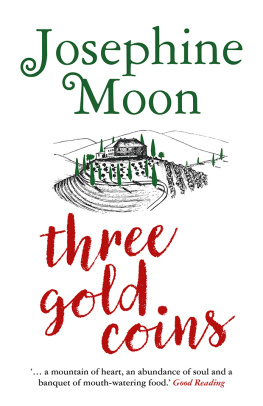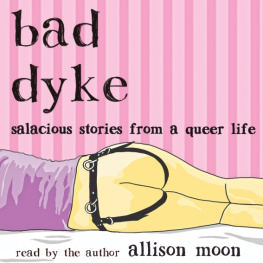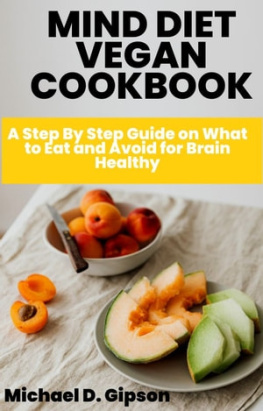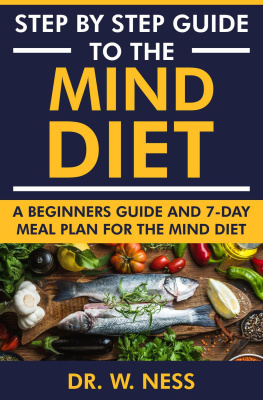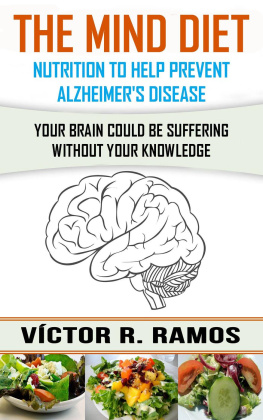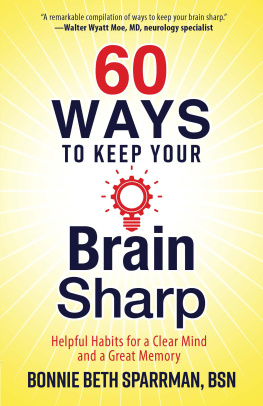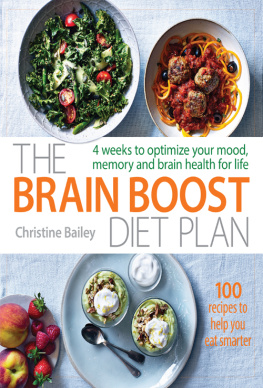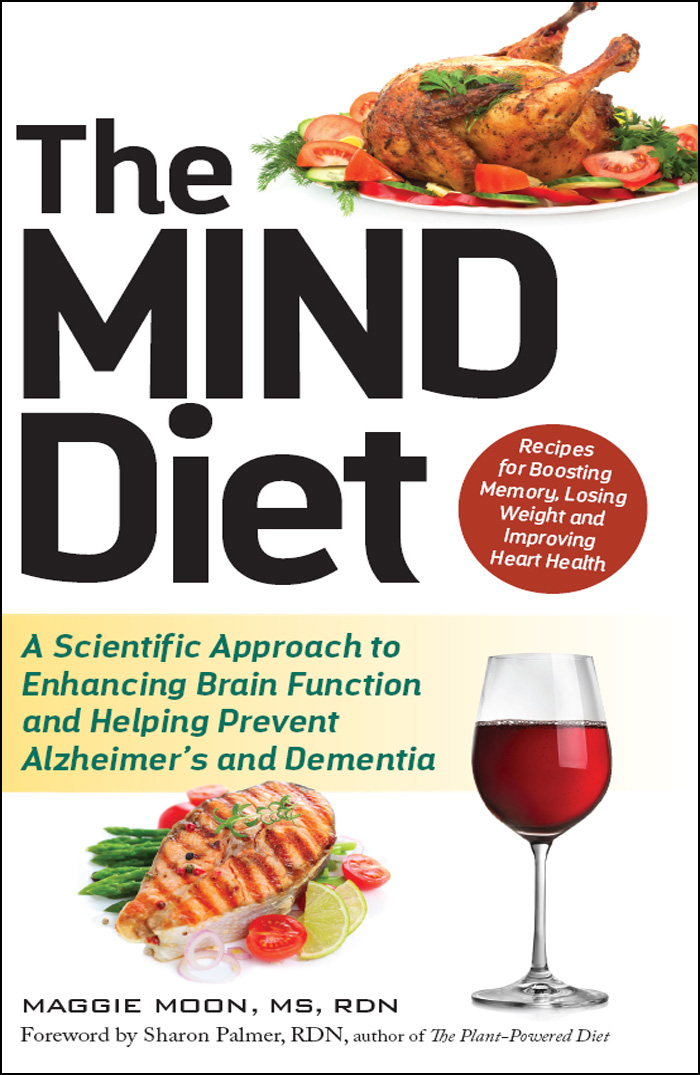
Text copyright 2016 Maggie Moon. Design and concept copyright 2016 Ulysses Press and its licensors. All rights reserved. Any unauthorized duplication in whole or in part or dissemination of this edition by any means (including but not limited to photocopying, electronic devices, digital versions, and the Internet) will be prosecuted to the fullest extent of the law.
Published in the United States by:
ULYSSES PRESS
P.O. Box 3440
Berkeley, CA 94703
www.ulyssespress.com
ISBN13: 978-1-61243-629-6
Acquisitions editor: Casie Vogel
Managing editor: Claire Chun
Editor: Renee Rutledge
Proofreader: Lauren Harrison
Indexer: Sayre Van Young
Front cover design: Double R Design
Cover artwork: all from shutterstock.com chicken Photocrea; salmon ElenaGaak; wine Givaga; spinach Binh Thanh Bui; berries Volosina; olives Gayvoronskaya_Yana; nuts and dried fruit Valentyn Volkov
Interior design:
Interior artwork: Serg64/shutterstock.com
Layout: Jake Flaherty
Distributed by Publishers Group West
IMPORTANT NOTE TO READERS: This book has been written and published strictly for informational and educational purposes only. It is not intended to serve as medical advice or to be any form of medical treatment. You should always consult your physician before altering or changing any aspect of your medical treatment and/or undertaking a diet regimen, including the guidelines as described in this book. Do not stop or change any prescription medications without the guidance and advice of your physician. Any use of the information in this book is made on the readers good judgment after consulting with his or her physician and is the readers sole responsibility. This book is not intended to diagnose or treat any medical condition and is not a substitute for a physician.
This book is independently authored and published and no sponsorship or endorsement of this book by, and no affiliation with, any trademarked brands or other products mentioned within is claimed or suggested. All trademarks that appear in ingredient lists and elsewhere in this book belong to their respective owners and are used here for informational purposes only. The authors and publishers encourage readers to patronize the quality brands mentioned and pictured in this book.
For In Moon and Teju Ziggy,
the eldest and youngest bright minds in my family.
Table of Contents
Guide
Contents
Fall in love with plants, and they will love you back.
Imagine this: There are more than 40,000 edible plant species on the planet, according to scientists, and within each species there are sometimes thousands of varieties. Each plant, from the rich, savory tomato to the bitter, pungent wild green, tells a story as it evolves along with mankind, developing its own unique colors, flavors, and texturesand cache of nutrients. Researchers today know that these plants are teeming with compounds called phytochemicals, which have the power to protect the plant from its threats, such as sun damage and pests. And these plants provide protection to humans too, creating a symbiotic relationship between people and plants. We care for the plants and pluck their fruits, and then cast away the seeds to start a new cycle of life; meanwhile we are sustained and nurtured by these plants as we live a long, prosperous life.
Weve known for some time that many whole plantsincluding leafy greens, berries, beans, nuts, whole grains, wine, and olivesare protective against many chronic diseases of our time, including cardiovascular disease and type 2 diabetes. So it comes as no surprise that the same list of foodsalong with fishappears to be good for the brain too. These foods are packed with brain-loving compounds, including carotenoids, flavonoids, and omega-3 fatty acids. By focusing on these foods, you crowd out the foods in your diet that appear to be troublesome for human health, such as red meat, saturated fats, and highly processed foods.
Why is this eating style protective for the brain? Though we need more research in this area, studies have shown that Mediterranean-style eating patterns are linked with a lower risk of neurodegenerative diseases, and now the MIND diet has been shown to protect against cognitive decline in aging. The MIND diet combines a Mediterranean diet with Dietary Approaches to Stop Hypertension diet (DASH)two of the most widely studied and successful diet patterns on the planet. These also happen to be two of the diet patterns recommended by the brand new Dietary Guidelines for Americans 2015-2020.
I love what these two diet patterns have in common: a focus on whole, minimally processed plant foods. These foods are colorful, potent in flavor, packed with antioxidant and anti-inflammatory compounds, and rich in fiber, healthy fats, vitamins, and minerals, all of which may be key to their brain-protective abilities. Compare this to a typical American diet (also called the Western diet), which is high in animal foods, highly processed foods, sugar, and salt, and low in whole plant foods; thus, it is pitifully poor in all of those compounds we know to be health-protective. No wonder scientists think that the Western diet may be linked to Alzheimers disease, and an estimated 25 percent of cases may be traced back to diet and inactivity. Alzheimers is more prevalent in developed countries where the Western diet is more prominentthe US is among the top three countries with the highest Alzheimers rates. Studies have even shown that people who migrate to the US have higher rates of the disease compared to those still living in their native homelandshighlighting that Alzheimers may be more strongly related to environment and lifestyle, rather than just genetics.
Whats more, the MIND diet is an eating pattern that will nourish your whole bodyheart, kidney, muscles, brain, and beyond. And its also better for the planet. As we move away from highly processed diets packed with red meat, we also reduce our carbon and water footprint. Best of all, this style of eating is delicious! Savory, fleshy beans; sauted greens in lemon and olive oil; spiced, crunchy farro; fresh berries dusted with chopped walnuts; a glass of red wine. Does that sound hard? Indeed, I believe that one of the main reasons we find benefits surrounding the Mediterranean and DASH diet patterns is that they are delicious and easy to sustain. Unlike many fad diets, which leave you hungry and deprived, these diet patterns are focused on fulfillment and good health. With a focus on real, flavorful foods, spices, olive oil, a touch of dark chocolate, and a glass of wine, you can feel truly good about this way of eating. And whats good for the body and soulin this caseis also good for the mind.
Im very excited about this fabulous book, which explains the very core of the MIND diet, written by my friend and colleague Maggie Moon, MS, RDN. Maggie is a talented dietitian, so skilled and practiced at crafting the latest evidence on nutrition science into an easy-to-digest, attainable method of eating for life. She has created a veritable blueprint for a healthy way of eating, for your mind and whole body. Let Maggie be your personal dietitian as she guides you through these pages, offering you a glimpse of how a healthy mind operates and which foods will best fuel your brain. Follow her practical tips and try out her delicious recipes in order to put the MIND diet into practice every single day. Make a smarter move toward cognitive health with every bite.


